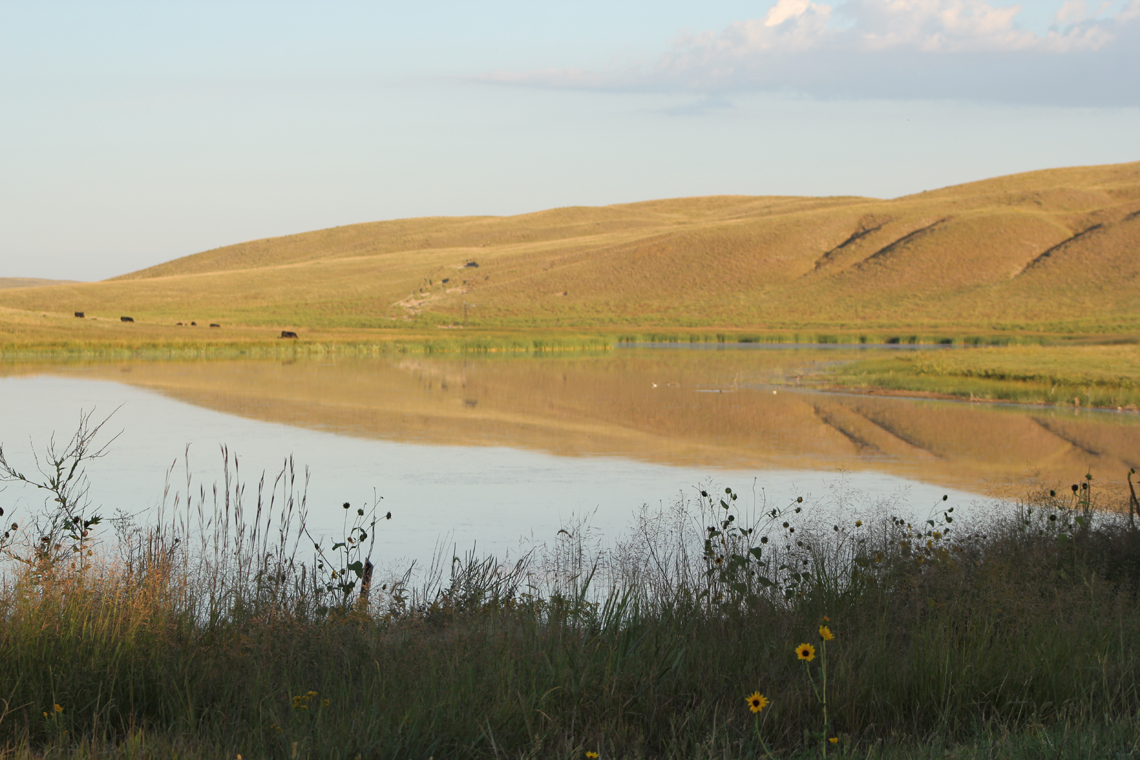
By: Amy Millmier Schmidt, UNL Livestock Bioenvironmental Engineer
Implementation of the Clean Water Rule: Definition of “Waters of the United States” (usually referred to as the WOTUS rule) was set to become effective on August 28, 2015. Several lawsuits were filed by agricultural groups, among others, requesting a preliminary injunction, or order, to halt the rule’s implementation until lawsuits could be settled. Late in the afternoon on August 27, a District Court judge in North Dakota issued a preliminary injunction stopping the WOTUS rule from going into effect for thirteen states, including Nebraska. For all other states who didn’t have preliminary injunctions issued, the rule took effect as planned on August 28.
WHY WERE LAWSUITS FILED AGAINST THE EPA AND ARMY CORP OF ENGINEERS (CORP) FOLLOWING RELEASE OF THE FINAL WOTUS RULE? Several lawsuits were filed following publication of the final WOTUS rule in the Federal Register. Twenty-seven states, along with industries from petroleum to construction, and agricultural groups such as the American Farm Bureau Federation, National Cattlemen’s Beef Association, National Corn Growers Association, and National Pork Producers Council all filed separate lawsuits. These numerous lawsuits have since been consolidated into a single lawsuit that identifies three arguments for vacating the rule. The first argument is that the finalized WOTUS rule exceeds the intended purposes of the Clean Water Act and represents an unconstitutional overreach by the federal government on land. Second, the rule-making process is designed to give the public an opportunity to comment on all aspects of a rule. In this case, EPA added items to the final rule that were not in the proposed rule. The third, and perhaps most concerning argument, is that the EPA may have inappropriately worked with environmental activists to lobby for the rule and support the agency’s agenda. If true, this represents an abuse of the federal rulemaking process by the EPA.
WHAT DOES THE TEMPORARY INJUNCTION MEAN FOR NEBRASKA FARMERS? It means that, for now, the status quo will be maintained. So current guidance documents and existing regulations for making “jurisdictional determination” will continue to be used by the Corp. New definitions and parameters outlined in the WOTUS rule will not be part of the Corp’s checklist when making these determinations in Nebraska. Jurisdictional determination simply means that the Corp reviews the necessary checklist regarding features of a water body, and possibly conducts an on-site inspection, to make a decision about whether the water body should be under their jurisdiction as “waters of the U.S.” The temporary injunction does not halt the rule entirely; it simply postpones implementation of the rule until legal proceedings are completed (which could take months or even years as we saw with the new AFO/CAFO regulations a few years back). If the pending lawsuits are not successful, and the WOTUS rule is eventually implemented in Nebraska, it remains to be seen what parts of the rule will remain and which will not. In Nebraska, we’ll cross that bridge when we get there.